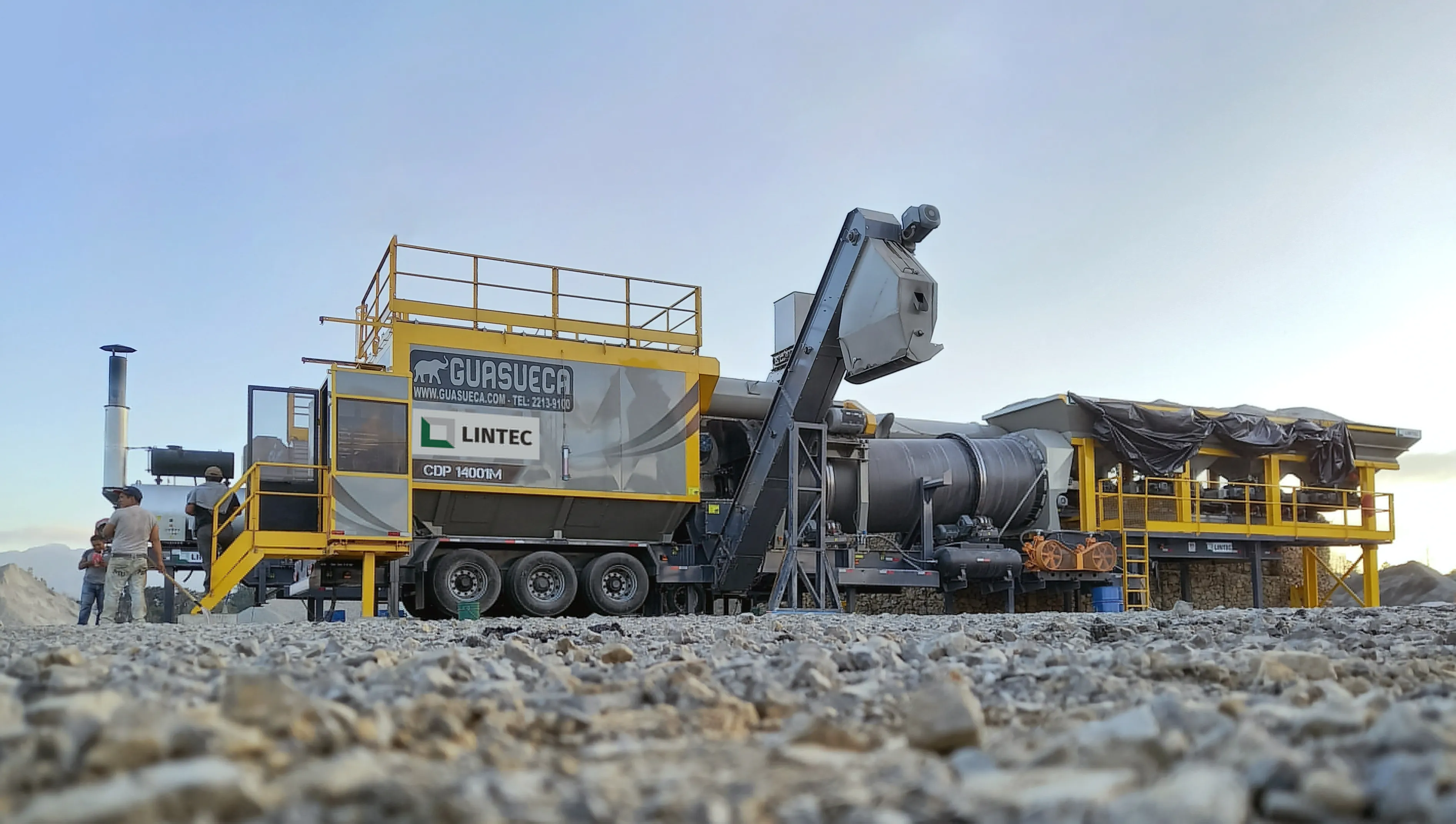
A customer in Guatemala has bought a second Lintec & Linnhoff continuous asphalt mixing plant from equipment dealer Guasueca. The new Lintec CDP14001M plant joins the customer’s existing Lintec CDP5001M, the smallest in this range. As soon as the new plant had been delivered to the customer, it was sent to support road improvement projects in Cobán, central Guatemala, over 200km from Guasueca’s HQ in Guatemala City.
Cobán is Guatemala’s fourth largest city and a popular eco-tourism and coffee-growing area, set at an elevation of 1,320m. It features a humid climate and has a high chance of rainfall on any given day, making working conditions variable and uncertain. For the coming months, the Lintec CDP14001M will supply material for road rehabilitation work to a 5km section of the Oce-003-2022 road network in the centre of the busy city.
The customer’s experience with the Lintec CDP5001M gave it confidence in the mobility and productivity of the plants according to Guaseca. With this in mind, the firm selected the larger Lintec CDP14001M for the project to improve traffic flow in Cobán’s urban areas. A key benefit was the ability to move the plant to different sites without difficulty, as well as its production capacity of up to 140tonnes of asphalt/hour.
The Lintec CDP14001M plant is designed for quick set-up and dismantling, including the ability to be assembled on compacted ground without the need for concrete foundations. It is claimed to suit use on short-term projects or mobilisation from one project to another. As the second-largest model in Lintec’s mobile CDP range, it can also be employed for stationary use, with the possibility of integrating either three 6m3 or four 7.5m3 aggregate bins to tailor the configuration to local conditions. A 40,000litre bitumen tank and 20,000litre fuel tank allow it to operate self-sufficiently.
The firm says that the plant can produce high quality hot-mix asphalt due to its advanced automatic control system software with manual override, along with the robust and durable twin-shaft mixer that enables precise, repeatable output.
With an area of 370m2, the Lintec CDP14001M’s baghouse filter ensures a low rate of particulate emissions. A further environmental benefit comes with the option of a cold recycling system that can use up to 15% of RAP in the feed.








